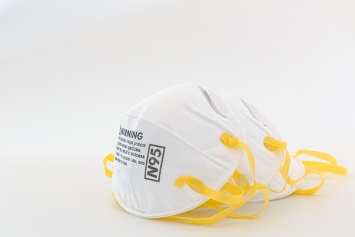On July 21, the Occupational Safety and Health Administration (OSHA) announced that it had cited an employer for violations of the respiratory protection standard after the company reported the coronavirus-related hospitalization of seven employees. The agency proposed penalties totaling $40,482 in its citation of Ohio-based healthcare company OHNH EMP LLC.
Coronavirus disease 2019 (COVID-19) is a respiratory illness caused by the SARS-CoV-2 virus. COVID-19 currently is widespread in most U.S. communities and considered a workplace hazard.
“It is critically important that employers take action to protect their employees during the pandemic, including by implementing effective respiratory protection programs,” Principal Deputy Assistant Secretary for Occupational Safety and Health Loren Sweatt said in an agency statement. “OSHA has and will continue to vigorously enforce the respiratory protection standard and all standards that apply to the coronavirus. As Secretary Scalia has said, ‘the cop is on the beat,’” Sweatt added.
OSHA inspected three OHNH EMP facilities: Pebble Creek Healthcare Center in Akron, Ohio, and Salem West Healthcare Center and Salem North Healthcare Center in Salem, Ohio. The agency cited each location for a serious violation of two respiratory protection standards: failing to develop a comprehensive written respiratory protection program (29 CFR 1910.134(c)(1)) and failing to provide medical evaluations to determine employees’ ability to use a respirator in the workplace (1910.34(e)(1)).
OSHA also issued a Hazard Alert Letter regarding the company’s practice of allowing N95 respirator use for up to 7 days and not conducting initial fit testing. Employers continue to experience shortages of N95 full facepiece respirators (FFRs) during the COVID-19 pandemic.
While OSHA, the Centers for Disease Control and Prevention (CDC), and the Food and Drug Administration (FDA) have allowed some latitude in respirator use, including the use of expired N95 respirators and emergency authorization for use of foreign-made FFRs that lack National Institute for Occupational Safety and Health (NIOSH) approval, employers are not exempt from requirements of the respiratory protection standard.
The respiratory protection standard includes requirements for written programs, medical evaluation, fit testing, and training.
The agency suggested healthcare employers use nondestructive (qualitative) fit-testing methods to conserve supplies of N95, N99, and N100 FFRs but has never exempted employers from fit-testing requirements of the respiratory protection standard.
Employees at OHNH EMP’s resident-care facilities were provided N95 respirators for use when performing aerosol-generating procedures on residents with cases of COVID-19 but did not undergo medical evaluation or respirator fit testing. On April 15, the employer issued a memorandum instructing employees to wear N95 respirators for 7 days or until damaged or soiled. The employer also instructed employees to wear surgical masks issued each day over their respirators. Wearing a surgical mask over a respirator could interfere with the respirator’s inhalation and exhalation resistance—factors that NIOSH tests in its certification of respirators. NIOSH tests respirators for inhalation and exhalation resistance in addition to particulate filter penetration.

